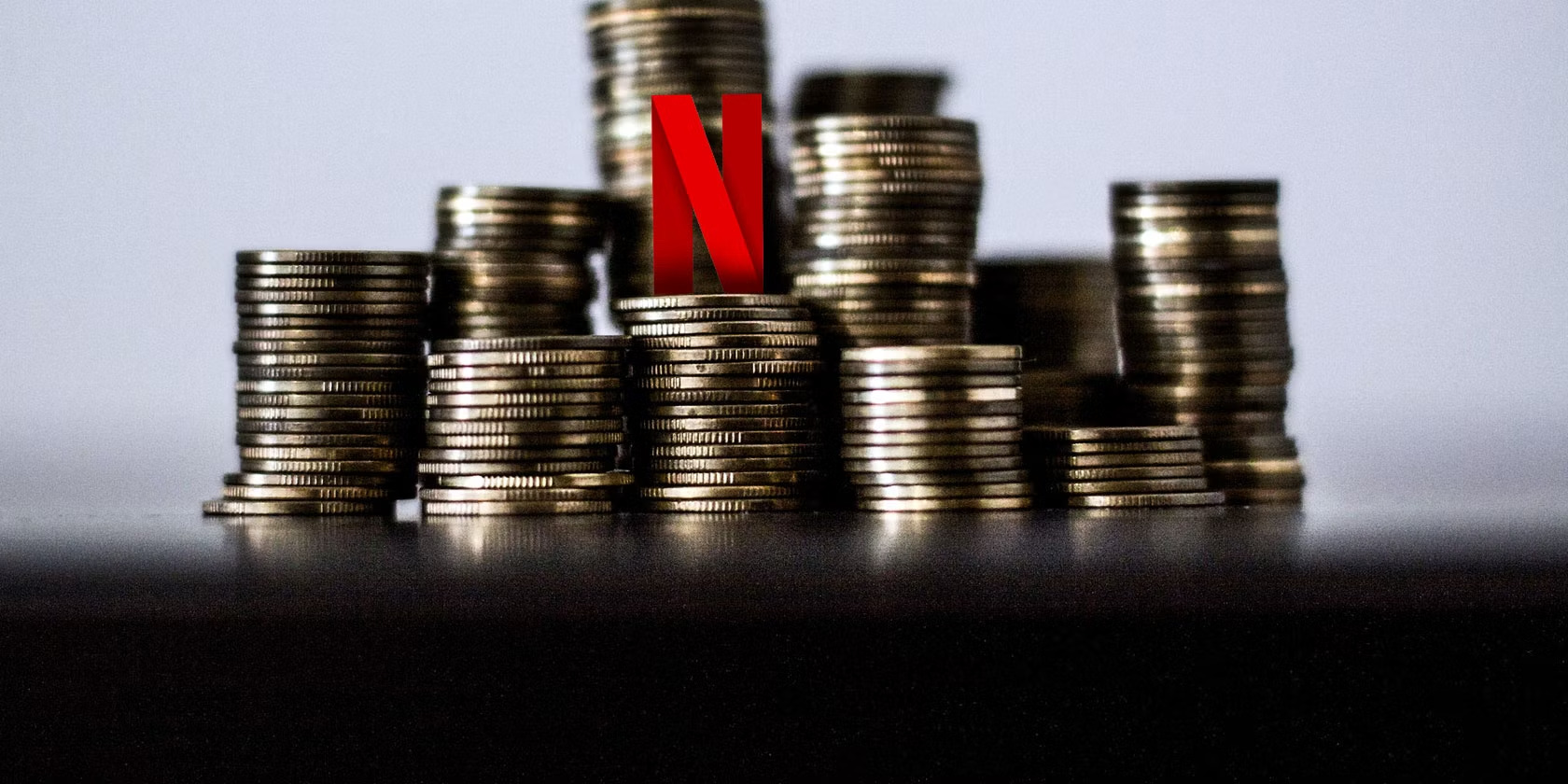Introduction
Welcome to the world of Netflix, where movies and television shows are just a click away. Netflix has revolutionized the way we consume entertainment, offering a vast library of content that can be streamed on-demand. But have you ever wondered how Netflix acquires the movies that you see on its platform? How much does Netflix pay to get those movies for its subscribers to enjoy?
With over 200 million subscribers worldwide, Netflix has become a major player in the entertainment industry. It has not only disrupted traditional television and cable networks but has also challenged the traditional movie distribution model. Instead of relying solely on movie theaters and DVD sales, Netflix acquires movies from various sources and makes them available for streaming on its platform.
Netflix has become a powerhouse in the world of movie acquisition, investing billions of dollars to secure the rights to stream movies exclusively on their platform. The company’s strategy involves a careful evaluation of several factors, including the popularity of the movie, its potential to attract subscribers, and its fit with the Netflix brand.
In this article, we will explore how Netflix acquires movies, the factors that determine how much Netflix pays for a movie, and the impact of movie acquisitions on Netflix’s overall budget. We will also delve into the role of film festivals in Netflix’s movie acquisition strategy and examine how negotiations and deals are made to set a price for a movie. By the end of this article, you will have a better understanding of the intricate process behind Netflix’s movie acquisitions and how it shapes the content you see on your screens.
How Does Netflix Acquire Movies?
Netflix employs multiple strategies to acquire movies for its streaming platform. One of the primary methods is through licensing agreements. Netflix negotiates deals with major studios, production companies, and distributors to obtain the rights to stream their movies. These agreements can range from short-term licensing deals for specific territories to long-term agreements for global streaming rights.
Another avenue for acquiring movies is through independent film distributors. Netflix often targets independent films that have garnered critical acclaim or have generated buzz at film festivals. By purchasing the rights to these films, Netflix can offer unique and diverse content to its subscribers, catering to a wide range of tastes and preferences.
Netflix also invests in original content, including movies. The company collaborates with directors, producers, and actors to produce exclusive movies that are only available on the Netflix platform. These original movies not only attract new subscribers but also help Netflix stand out in the highly competitive streaming market.
Moreover, Netflix has a strong presence at prestigious film festivals such as Sundance, Cannes, and Venice. Film festivals serve as a platform to discover and acquire movies that have the potential to resonate with audiences. Netflix scouts for standout films at these events, engaging in bidding wars and securing the rights to distribute them on their platform.
In recent years, Netflix has also started acquiring completed movies that were initially intended for theatrical release but have faced challenges due to various factors such as limited distribution opportunities or financial constraints. By acquiring these movies, Netflix not only ensures that the films reach a wider audience but also allows filmmakers to recoup their investments and gain exposure.
Overall, Netflix utilizes a combination of licensing agreements, partnerships, original content production, and engagement with the film festival circuit to acquire an extensive library of movies. Through these efforts, Netflix continues to expand its movie catalog, offering a diverse range of content to its subscribers.
The Factors that Determine How Much Netflix Pays
When it comes to determining the amount that Netflix pays for a movie, several key factors come into play. These factors help Netflix evaluate the value of a movie and negotiate a fair price. Here are some of the main considerations:
1. Popularity and Demand: The popularity and demand for a movie are crucial in determining how much Netflix is willing to pay. Movies that have already gained a significant following or have a strong fan base are likely to command higher prices. Netflix takes into account the potential viewership and subscriber appeal of a movie before making an offer.
2. Film’s Performance: The performance of a movie at the box office or in other distribution channels is also a significant factor. Movies that have achieved financial success or received critical acclaim are often more attractive to Netflix. The track record of a film can influence the price, as movies with a proven history of generating revenue are seen as safer investments.
3. Exclusive Rights: The exclusivity of the rights being offered can impact the price Netflix is willing to pay. Obtaining exclusive streaming rights for a movie means that it won’t be available on other streaming platforms, giving Netflix a competitive advantage. The level of exclusivity, whether it’s for specific territories or global streaming rights, can affect the price negotiations.
4. Production Cost: The production cost of a movie is yet another factor that comes into play. Films with higher budgets or significant production value may command higher prices due to the financial investment that went into their creation. Netflix considers the quality of the production and the potential for attracting subscribers before determining how much they are willing to pay.
5. Genre and Content Fit: Netflix caters to a diverse audience with different preferences. As such, the genre and content of a movie are important considerations. Films that align with Netflix’s target audience and content strategy are likely to receive higher offers. Netflix looks for movies that fill gaps in its library or complement their existing content lineup.
6. Competitive Landscape: The competitive landscape also plays a role in determining the price Netflix pays for a movie. If there is strong competition from other streaming platforms or traditional distributors vying for the same film, it can drive up the price. Netflix must assess the market conditions and make competitive offers to secure desired movies.
By considering these factors, Netflix can evaluate the value and suitability of a movie for its platform. The negotiation process involves careful analysis and financial considerations, ensuring that both the content creators and Netflix reach a mutually beneficial agreement.
The Role of the Film Festival Circuit in Netflix’s Movie Acquisition Strategy
The film festival circuit plays a crucial role in Netflix’s movie acquisition strategy. Netflix actively participates in renowned film festivals such as Sundance, Cannes, Toronto, and Venice, among others. These festivals serve as important platforms for discovering new and promising films, and they provide Netflix with an opportunity to scout and acquire movies that align with their content strategy. Here’s how the film festival circuit contributes to Netflix’s movie acquisition strategy:
1. Discovering Independent Gems: Film festivals are known for showcasing independent films that often fly under the radar of major studios. These films offer unique storytelling, fresh perspectives, and creative approaches that captivate audiences. Netflix recognizes the value of these independent gems and actively seeks them out at film festivals. By acquiring these films, Netflix not only supports independent filmmaking but also enhances the diversity and variety of its movie catalog.
2. Buzz and Critical Acclaim: Film festivals generate buzz around the films they showcase. When a movie receives positive reviews and critical acclaim at a festival, it captures the attention of industry professionals and audiences alike. Netflix takes note of these buzz-worthy films as they often have the potential to become breakout hits. Acquiring such films allows Netflix to cater to the demand for high-quality and critically acclaimed content.
3. Exclusive Distribution Rights: Film festivals provide a platform for distribution deals to be made. Netflix actively participates in bidding wars for highly sought-after films, competing with other distributors to secure exclusive rights. By winning the rights to distribute a film exclusively, Netflix ensures that the movie becomes a part of its exclusive content library, giving subscribers access to unique and compelling content that can’t be found elsewhere.
4. Launching Pad for Filmmakers: Film festivals not only showcase movies but also serve as launching pads for aspiring filmmakers. Netflix recognizes the talent and potential of emerging filmmakers and uses film festivals as an opportunity to connect with them. By acquiring their films, Netflix supports these filmmakers and helps them gain wider exposure. This not only benefits the filmmakers but also adds an element of freshness and innovation to the Netflix movie lineup.
5. Global Reach and Expansion: Film festivals attract filmmakers, industry professionals, and audiences from all around the world. This provides Netflix with an opportunity to acquire films with international appeal. By diversifying their movie catalog with films from different countries and cultures, Netflix can expand its global reach and cater to the diverse tastes of its international subscribers.
Overall, the film festival circuit serves as a vital component of Netflix’s movie acquisition strategy. It allows Netflix to discover hidden gems, secure exclusive distribution rights, support emerging filmmakers, and expand its global reach. By actively participating in film festivals, Netflix ensures that its movie catalog remains fresh, diverse, and attuned to the preferences of its subscribers.
Netflix’s Budget for Movie Acquisitions
Netflix is known for its significant investment in acquiring movies for its streaming platform. The company allocates a substantial budget each year to secure the rights to a wide range of movies. While Netflix does not publicly disclose its exact budget for movie acquisitions, industry estimates suggest that it spends billions of dollars annually in this endeavor.
The budget for movie acquisitions is an essential aspect of Netflix’s overall content strategy. With competition from other streaming platforms and traditional movie distributors, Netflix understands the importance of offering a diverse and compelling range of movies to its subscribers. In order to build a robust and attractive movie library, Netflix is willing to invest heavily in acquiring films.
The size of Netflix’s movie acquisition budget allows the company to pursue a variety of movies, from high-budget Hollywood blockbusters to independent films and foreign-language cinema. This enables Netflix to cater to a broad audience, appealing to different tastes and preferences.
Not only does Netflix acquire already released movies, but it also invests in producing original content, including movies. This means that a portion of the budget is set aside for financing the production of exclusive and original films. These movies often feature A-list talent and renowned directors and serve as a significant draw for subscribers.
Netflix’s substantial budget for movie acquisitions also enables the company to engage in bidding wars at film festivals and negotiate licensing deals with major studios and production companies. By offering competitive deals, Netflix can secure high-profile movies and exclusive streaming rights that keep its content library fresh and appealing.
It’s worth noting that Netflix’s movie acquisition budget is not static and can fluctuate from year to year. Factors such as market conditions, the success of previous acquisitions, and the overall content strategy of the company influence the budget allocation. As Netflix continues to expand its subscriber base and establish itself as a key player in the industry, it is expected that the budget for movie acquisitions will continue to grow.
With a substantial budget dedicated to acquiring movies, Netflix demonstrates its commitment to providing a vast and diverse range of content to its subscribers. This investment not only enhances the viewing experience for Netflix users but also solidifies the platform’s position as a leader in the streaming industry.
Negotiations and Deals: How Netflix Sets a Price for a Movie
Negotiating the price for a movie is a crucial aspect of Netflix’s movie acquisition process. Netflix employs a combination of factors, strategies, and industry expertise to determine a fair price for acquiring the rights to stream a particular movie on its platform. Here’s an overview of how Netflix sets a price for a movie:
1. Market Analysis: Netflix conducts thorough market analysis to assess the potential value and demand for a movie. This involves evaluating the current market trends, the performance of similar movies, and the competition from other streaming platforms or traditional distributors. By analyzing the market, Netflix gains insights into the market value of the movie and its potential appeal to subscribers.
2. Content Evaluation: Netflix evaluates the content of the movie to determine its fit within their content strategy and target audience. They consider factors such as the genre, storyline, themes, and cultural relevance. This evaluation helps Netflix assess the movie’s potential to attract and engage subscribers, which influences the price they are willing to pay.
3. Budget and Financial Analysis: Netflix takes into account its overall budget for movie acquisitions and weighs the financial feasibility of acquiring a particular movie. Factors such as production cost, marketing expenses, and licensing fees are considered in this financial analysis. Netflix strives to strike a balance between its budget limitations and the potential value the movie brings to its platform.
4. Exclusive Rights and Territories: The exclusivity of the rights being negotiated plays a significant role in setting the price. Netflix determines the level of exclusivity it requires, whether it’s acquiring global streaming rights or limited territorial rights. The broader the exclusivity, the higher the price. Netflix considers the potential impact of exclusive rights on subscriber retention and acquisition.
5. Negotiation Tactics: Netflix’s negotiation team employs various tactics to secure a favorable price. They leverage their market position, subscriber base, and past successes to negotiate from a position of strength. However, they also take into account the fair value of the movie and maintain a mutually beneficial relationship with the content creators or distributors.
6. Past Performance and Predictive Analytics: Netflix relies on data analytics to evaluate the past performance of similar movies and predict the potential viewership and success of the movie they are considering. They utilize their vast amount of user data to identify patterns and trends, helping them estimate the value and the level of investment they should make in acquiring a particular movie.
7. Successful Track Record: Netflix’s successful track record in producing and distributing original movies also plays a role in price negotiations. Filmmakers and content creators are often eager to collaborate with Netflix due to their extensive reach and their reputation for supporting creative freedom. Netflix’s past successes can influence negotiations and provide them with leverage in securing a favorable deal.
By considering these factors and utilizing their negotiation strategies, Netflix sets a price that aligns with the value and market potential of the movie. The ultimate goal is to strike a fair deal that benefits both Netflix and the content creators, while also enriching the content library for Netflix subscribers.
Understanding Netflix’s Revenue Model and Movie Acquisitions
Netflix’s revenue model is primarily based on the subscription fees paid by its millions of subscribers worldwide. As such, the acquisition of movies plays a crucial role in attracting and retaining subscribers, as well as generating revenue for the streaming giant. Here’s a closer look at how Netflix’s revenue model and movie acquisitions intersect:
1. Subscriber Growth: Netflix’s primary objective is to grow its subscriber base. By offering a diverse and appealing selection of movies, Netflix attracts new subscribers, increases user engagement, and reduces churn rates. Acquiring popular and exclusive movies allows Netflix to continuously entice new users to sign up for their streaming service.
2. Retaining Subscribers: Once subscribers are onboarded, Netflix focuses on keeping them engaged and satisfied. Regularly updating the movie catalog with fresh content helps retain subscribers and reduce churn. By acquiring a variety of movies from different genres and languages, Netflix caters to the diverse preferences of its subscribers, ensuring there is always something new and interesting to watch.
3. Increased Subscription Revenue: As more subscribers join Netflix, the company’s overall revenue increases. The subscription fees paid by each subscriber contribute to the company’s financial stability and ability to fund future movie acquisitions. By acquiring popular and high-quality movies, Netflix enhances the value proposition for subscribers, justifying the subscription fees and encouraging long-term loyalty.
4. Expansion into New Markets: Netflix’s revenue model rests on its global expansion efforts. As the company enters new markets and expands its international presence, acquiring movies becomes essential to appeal to diverse cultures and tastes. By acquiring local and foreign-language movies, Netflix can tap into new markets and attract a broader international subscriber base.
5. Original Content Productions: In addition to acquiring movies, Netflix invests heavily in producing original content, including movies. By financing and producing exclusive films, Netflix not only attracts subscribers but also generates revenue through strategic marketing and distribution. The success of their original movies often leads to increased brand loyalty and engagement from subscribers.
6. Partnerships and Co-Productions: Netflix also engages in partnerships and co-productions to acquire movies. These collaborations provide opportunities to share production costs, tap into diverse networks and creative talents, and secure access to high-profile movies. Through such partnerships, Netflix expands its movie catalog while minimizing financial risks.
7. Licensing and Syndication: In certain cases, Netflix also licenses its original movies and content to other distribution platforms, enabling additional revenue streams. By syndicating their content, Netflix can monetize their investments and potentially reach an even wider audience.
Overall, Netflix’s revenue model relies on its ability to acquire, produce, and distribute compelling movies to attract and retain subscribers. The continuous investment in movie acquisitions not only enhances the content library but also serves as a fundamental driver for the company’s sustained growth and financial success.
How Much Does Netflix Pay for Exclusive Rights?
When it comes to securing exclusive rights to stream a movie on its platform, Netflix is known to make significant financial investments. The amount that Netflix pays for exclusive rights can vary widely depending on several factors:
1. Film’s Popularity and Demand: If a movie has already gained considerable popularity and has a strong demand from audiences, Netflix may need to pay a higher price to secure exclusive rights. Movies that have performed exceptionally well at the box office or have received critical acclaim often command a premium.
2. Competing Bids: In some cases, multiple streaming platforms or traditional distributors may be vying for the same movie’s exclusive rights. This competition can drive up the price as entities strive to outbid each other. Netflix’s financial resources and strong market position often give them an advantage when it comes to acquiring high-profile movies.
3. Film’s Budget and Production Value: The production cost and overall value of a movie can influence the price that Netflix pays for exclusive rights. Movies with higher budgets or significant production value may require a larger investment from Netflix to secure exclusive streaming rights. The level of investment is often justified by the movie’s potential to attract subscribers and contribute to the overall quality of Netflix’s content library.
4. Exclusivity and Territory: The extent of exclusivity and territorial rights also affects the price Netflix is willing to pay. Acquiring global streaming rights or exclusive rights for multiple territories usually involves a higher price tag compared to limited rights for specific regions. Netflix considers the size of its subscriber base and potential viewership in different territories when determining the value of exclusive rights.
5. Netflix’s Overall Content Strategy: Netflix analyzes how a movie aligns with its overall content strategy and target audience. Movies that fit well within Netflix’s content portfolio and resonate with their subscribers’ preferences often receive higher offers. By acquiring movies that enhance their content library and cater to the diverse tastes of their subscribers, Netflix aims to strengthen customer satisfaction and retention.
Due to the confidentiality of deals, exact figures are not publicly disclosed. However, it’s worth noting that Netflix is known for its substantial investment in exclusive rights. The streaming giant’s willingness to spend billions of dollars each year on content acquisitions demonstrates their commitment to providing subscribers with premium and exclusive movies.
By securing exclusive rights to highly anticipated and sought-after movies, Netflix differentiates itself from competitors and adds value to its subscription service. The financial investment in exclusive rights is a strategic move aimed at attracting and retaining subscribers while continuously enhancing the content library with exclusive, high-quality, and engaging movies.
The Impact of Original Content Productions on Netflix’s Movie Budget
Netflix’s investment in original content productions has a direct impact on its movie budget. The company allocates a significant portion of its budget to finance the production of exclusive movies that are only available on the Netflix platform. Here’s how original content productions affect Netflix’s movie budget:
1. Increased Production Costs: Producing original movies involves various costs, including script development, pre-production, filming, post-production, marketing, and distribution. These expenses can add up quickly, especially for productions with high production value, renowned directors, and A-list actors. Netflix earmarks a significant portion of its movie budget to cover these production costs.
2. Competitive Bidding and Acquisitions: Original content productions often require bidding and acquiring scripts or story rights. Netflix competes with other studios and streamers in securing the rights to produce certain movies, and this competition can drive up the acquisition costs. The more competitive the bidding process, the higher the price Netflix may be willing to pay to secure exclusive rights to a particular movie.
3. Marketing and Promotion: Netflix invests heavily in marketing and promoting its original content productions, including movies. The company undertakes extensive promotional campaigns to drive awareness and generate buzz around its original movies. This investment in marketing and promotion further impacts Netflix’s movie budget, as it plays a crucial role in attracting subscribers and building anticipation for these exclusive titles.
4. Diversification of Content Library: By producing original movies, Netflix aims to diversify its content library and offer unique and compelling content to its subscribers. This diversification helps attract new subscribers while catering to the varying tastes and preferences of its existing user base. The budget allocation for original content productions ensures that Netflix maintains a robust lineup of exclusive movies, enhancing the overall value proposition of its streaming service.
5. Leveraging Creative Talent: Netflix partners with renowned directors, producers, and actors to develop and produce its original movies. The involvement of these highly sought-after creative talents adds prestige and appeal to the films. However, partnering with established talent can also come with a higher price tag, impacting Netflix’s movie budget. The company is willing to invest in top-tier talent to deliver exclusive and high-quality movies that resonate with its subscribers.
6. Impact on Other Movie Acquisitions: The investment in original content productions can influence Netflix’s budget allocation for acquiring movies from external sources. While original productions consume a portion of the movie budget, Netflix continues to allocate resources to secure the rights to third-party movies. The balance between original content and external acquisitions depends on factors such as the company’s content strategy, market demand, and the availability of enticing movie opportunities.
Overall, the investment in original content productions is a vital component of Netflix’s movie budget. It allows the company to differentiate itself in the streaming market, attract subscribers, and continually provide exclusive and diverse content. While producing original movies entails a significant financial commitment, it plays a crucial role in shaping the content library and strengthening Netflix’s position as a leading provider of premium streaming entertainment.
Conclusion
The world of Netflix movie acquisitions is a complex and strategic landscape. Netflix’s investment in acquiring movies is a crucial element of its business model, as it plays a significant role in attracting and retaining subscribers, generating revenue, and differentiating itself from competitors.
Netflix utilizes various strategies to acquire movies, ranging from licensing agreements with major studios and distributors to partnerships with independent film distributors and investments in original content production. The company carefully evaluates factors such as the popularity and demand for a movie, its production value, genre fit, and market conditions to determine the price it is willing to pay.
The film festival circuit also holds immense importance in Netflix’s movie acquisition strategy. By actively participating in renowned film festivals, Netflix identifies and acquires hidden gems, leverages the buzz and critical acclaim generated at these events, and supports emerging filmmakers.
Understanding Netflix’s revenue model is essential to comprehending the significance of movie acquisitions. The revenue generated from subscription fees directly correlates with Netflix’s ability to finance movie acquisitions, produce original content, and expand into new markets. The company’s substantial budget allocation for movie acquisitions reflects its commitment to providing subscribers with a diverse range of high-quality and exclusive films.
The impact of original content productions on Netflix’s movie budget cannot be understated. Producing original movies incurs costs related to script acquisition, production, marketing, and leveraging top-tier talent. However, these investments contribute to the company’s goal of diversifying its content library and attracting subscribers with unique and compelling content.
In conclusion, Netflix’s movie acquisition strategy is a carefully calculated and dynamic process. By evaluating market trends, competition, and content value, Netflix strives to acquire a diverse and appealing range of movies that cater to its global subscriber base. Through strategic partnerships, licensing agreements, and original content productions, Netflix continues to strengthen its position as a leader in the streaming industry, delighting subscribers with an extensive library of movies to enjoy at their fingertips.

























